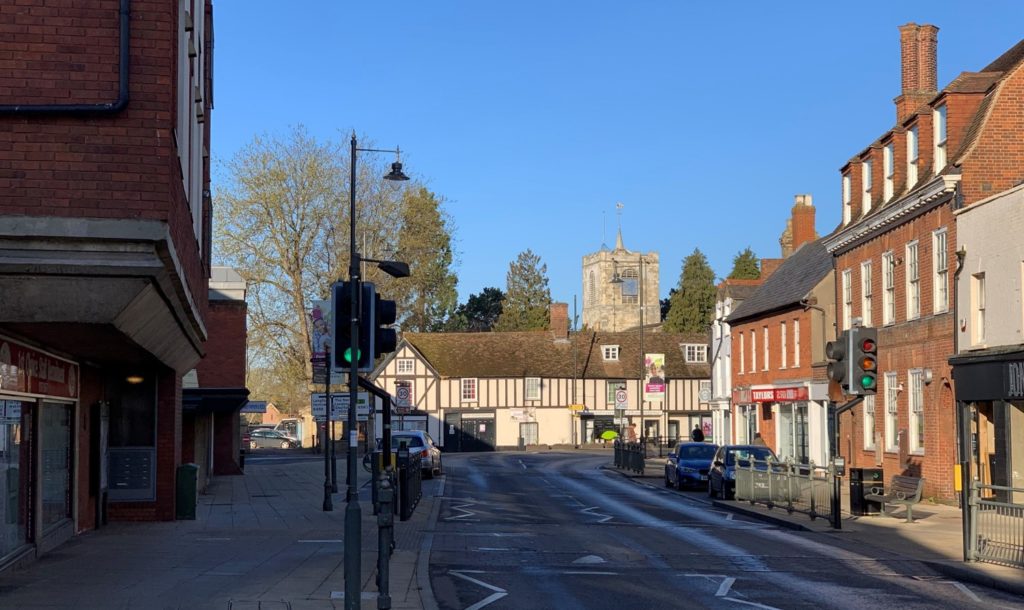On Tuesday 4th June at 7pm the Town Centre Management Committee will be meeting and on the agenda is the licensing of street furniture that includes tables, chairs, A-frames mannequins – basically anything on the pavement outside a shop. Details can be found here.
Biggleswade Town Council has been granted permission to enforce street furniture licensing under delegated agreement by CBC. CBC has legal powers to grant permission, require payment, set conditions with each application, decline an application and enforce the rules and regulations.
WHY IS THIS NEEDED?
Both councils think it is important to ensure that street furniture licensing is carefully controlled. It will allow them to regulate how and where street furniture is positioned and to remove items that are blocking pavements. It’s important for people with prams, wheelchairs or those with impaired vision or other mobility difficulties to be able to walk along our pavements without risk of accidents or incidents.

WHAT ELSE WILL THE LICENSE SEEK TO ENFORCE?
Reasonable quality seating and tables would be expected which makes sense from a health and safety point of view. However, if you’re a shabby chic or recycling fan you’ll be disappointed to know that ‘a mixture of furniture is not recommended’ and would normally be rejected ‘as uniformity is essential in maintaining a pleasant streetscape’. This seems a bit restrictive in a time when upcycling is all the rage and should be encouraged. Furthermore the council also want to dictate the colour scheme by saying ‘the materials and colours should not be too bright, garish or overly reflective’. I think overly reflective is fair enough as this will be close to a main road but if a shop wants electric blue chairs outside to match its colour scheme then it shouldn’t be prevented by the council.
HOW MUCH WILL IT COST?
When this licensing document first came to the Town Centre Management Committee the costs were exorbitant and just another tax on the shopkeepers of Biggleswade. Given any costs are intended to simply cover the administration of the scheme the new pricing structure is a great improvement. However, there is still a fee of £250 for any premises wishing to have up to ten tables outside which is going to hit small new businesses such as Jones’ and Rosso Lounge particularly hard.
This ‘table tax’ will be payable annually and all businesses wishing to have ANY pavement furniture will have to renew their application on an annual basis. If they don’t have a valid license the council will charge them £40 per item to remove things.
HOW ELSE COULD THIS WORK?
It’s a great idea to have some means to regulate pavement furniture within the town as unimpeded access for all should be prioritised. But we have to be careful not to stifle a town centre that is already struggling. Ideally Biggleswade would be allowed to develop its own identity and not have to conform to a prescribed ‘look’ that someone, somewhere, has decided is pleasing to their eye. If a shop looks ugly you can guarantee it will either be a talking point and people will flock there or else avoid it and the owners will change things!
I would suggest the council reduce (or abolish) any remaining fees for all but the biggest premises. Biggleswade does not need a ‘table tax’. Surely we want to be encouraging shops to open and people to use them, not make it harder for them to exist and necessitate the need to pass any costs on to the customer. It would also be better if a one-off application was all that’s required with a new application when an amendment is needed. Wouldn’t it be better to reduce the admin burden for the shopkeepers and the town council so that council staff can instead spend the time walking the pavements identifying and resolving issues.